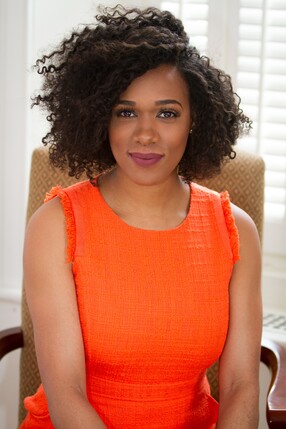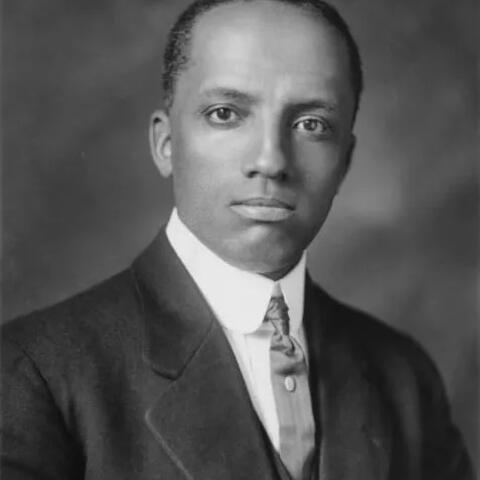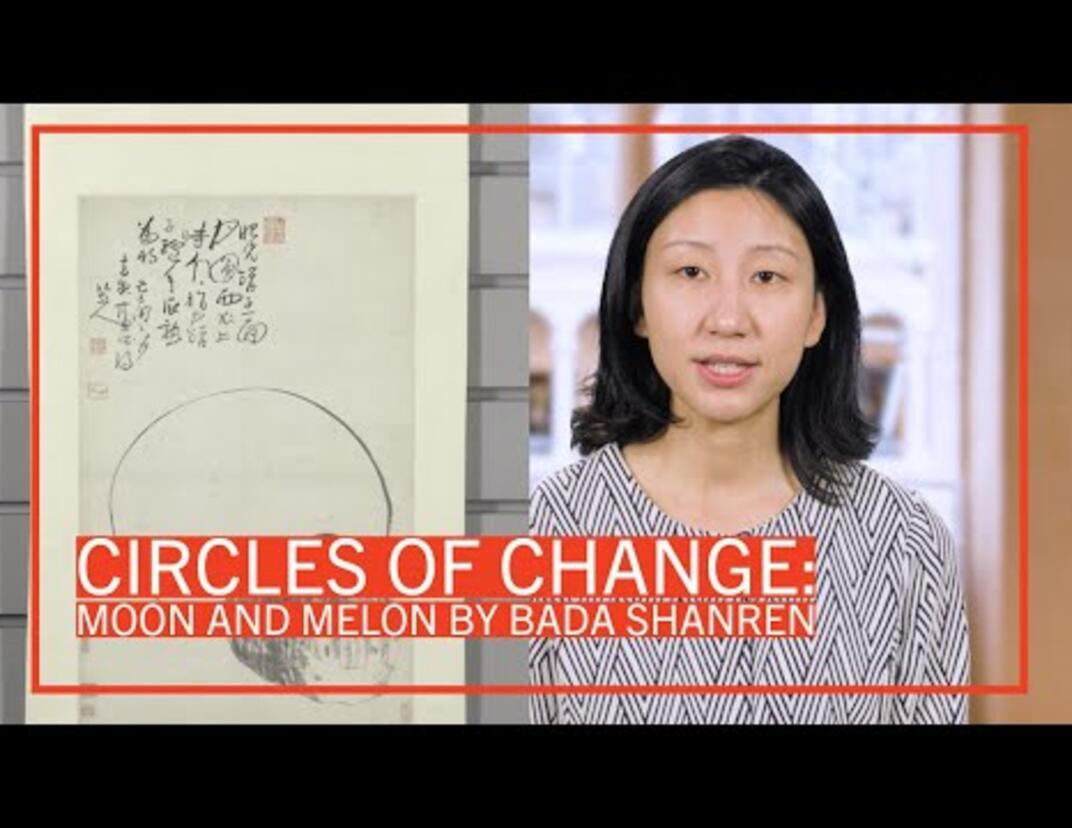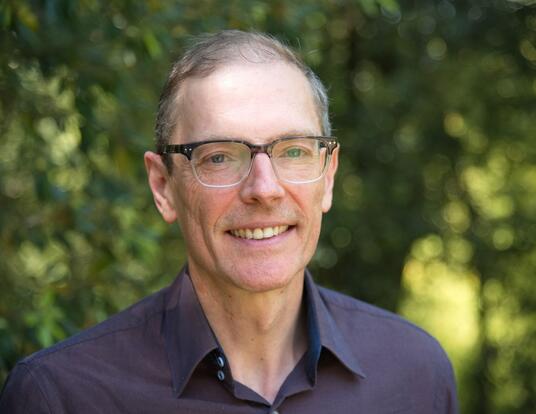Digital Christianity
How Kera Street considers the intersection of digital media and religion.

Growing up, Kera Street’s life was church. Her friends, her extracurriculars, where she spent weekends and school breaks, all revolved around Mt. Gilead, a non-denominational church in her hometown of Richmond, Virginia. “Faith and church really influenced who I was,” she recalls.
But as she grew older, Street, now a PhD student in the study of religion, found herself wanting to know more about the religion she aligned herself with. When she enrolled at Spelman College, a historically Black women’s college in Atlanta, Georgia, she began to spend time interrogating her beliefs. “My goal was to study religion and do the pre-med track, but I hated all my science and math classes, so I stuck with religion,” she says.
After making that decision, Street decided to zero in on how religious practice affects day-to-day decision making, especially how the desire to be a good person of faith can dictate what clothes to wear, whom to hang out with, and what to post on social media. But by her senior year, she realized she didn’t know where to go next. “I had friends going to law school and studying for the GMAT,” she says. “I remember thinking: Well, what does a religious studies major do? And how am I going to feed myself?” Her questions led her to a weekend at Harvard Divinity School’s Diversity and Explorations Program, designed for undergraduates of color interested in diversity and social justice who are considering religious, theology, or ethics study. Three days in Cambridge was all it took. Street headed back to Spelman thinking, “This is it, this is what I want to do.”
Digital Impact

By 2008, Street had returned to Harvard Divinity School to work toward a Master of Theological Studies. After graduating in 2010, and taking two years off, she decided to continue on for a PhD because she was interested in investigating digital media, religion, and where and how they intersect. “[Digital media] has become such a key feature in our current time,” she says. “You can’t go anywhere without feeling the impact of digital media technologies, whether people are reading Bible texts on their phone or listening to a podcast. There’s no way to think about our world without looking at our online and offline lives.”
Initially, Street had trouble finding a representative group to study. But then, a friend told her about a book authored by Heather Lindsey, a blogger and prominent figure in online Christian communities. Lindsey had created the Pinky Promise movement, which encourages women to stay celibate until marriage and to work on themselves instead of looking for a man. Street was fascinated by Lindsey’s work and her following, which is predominantly Black women. After digging a little deeper, Street knew this was the group she wanted to investigate.
Before starting the Pinky Promise movement in 2012, Lindsey had blogged about her faith walk with Christ, bad dating experiences, and general messages of God’s word. Over time, she gained a following as she began posting encouraging messages on her social channels and opening up about her past, a practice she continued after establishing Pinky Promise. Women related to Lindsey and her teachings, and Street wanted to understand the motivation they felt to join this movement.
At its core, Pinky Promise functions as a global Bible study. In more than 500 chapters throughout the world, women meet regularly to discuss their lives, their faith, and teachings from the Bible. As Street delved more into her research, she saw how Lindsey’s personal story drew women to join the movement. Lindsey had been living in New York City and was an active member of her church, praying regularly and studying the Bible. Even so, she consistently found herself in troublesome relationships. Eventually, she came to believe that the men in her life weren’t the ones God intended for her and decided to give up dating to focus on her relationship with God. Not long afterward, she connected with a member of her church and quickly realized the man was going to be her husband. Eventually, he was.
Street believes the story of Lindsey and her husband speaks to members because it’s a message of hope. It illustrates what the organization teaches—that the man God created especially for them won’t play games; they’ll be clear about their intentions and, according to Lindsey, they’ll do the courting and lead the relationship.
Social Connection
Street conducts her research through traditional and digital ethnography, examining how Lindsey interacts with organization members via YouTube, her website, and social sites like Instagram, and by participating in the activities of the Boston chapter and their social channels. She interviewed Lindsey and other organization leaders, and she has also visited the London chapter and attended conventions in the US to see how the organization functions as a whole.
Through her observations, Street has gained a better understanding of how a person’s religion can dictate behavior online and in person. “Pinky Promise as an organization is definitely sexy, and the social media aspect of the group and the way they’re blurring community-building online and in person is really interesting,” Street says. “These women want to live pure. That includes their relationships and the ways in which they use technology and social media.” For example, women don’t only agree to be celibate until marriage, they also agree to avoid the dating culture—digital or not—that exists in the world today, especially for millennials and Generation Z. This means sites like Tinder and OkCupid aren’t part of their lives.
Street has also noticed that women in the movement are encouraged to create a digital life that matches who they say they are, and they support each other with that goal. Many women are following in Lindsey’s footsteps and actively use their social media to talk about their commitment to celibacy and to living a pure life as a Christian woman. “One of the ways you live a good Christian life [according to Pinky Promise] is by making sure how you represent yourself online is aligned with who you want to be,” Street explains. “The idea is that there has to be some consistency between your in-person life and your online life.”
Defining what it means to be a good Christian woman is mostly left up to interpretation, and Street notes that Lindsey and other Pinky Promise leaders don’t force members to behave one way or another. However, the organization abides by certain core beliefs, for example, encouraging members to wait until marriage to have sex. Pinky Promise also doesn’t recognize same-sex couples, believing that marriage is between one man and one woman. Although the conservative views of the Pinky Promise movement may seem outdated, Street says the organization is able to thrive in the contemporary moment because they lean in to the digital landscape and do not shy away from conversations about sex, online dating, and what it means to be a woman in 2018 and beyond. “What makes Pinky Promise so relevant is that Heather Lindsey and her team are interested in having these conversations about what’s happening right now,” Street says. “They are trying to produce and encourage a counterculture movement that says ‘Yes, this is the way our culture does it, but we don’t encourage that at all. You should be waiting for God to send you someone who is aligned with the purpose for your life.’”
Street has also found that many women hold on to the selling of a Christian fairy tale, but tweaked. Lindsey encourages women to find their purpose, what they were put on the earth to do, so that their life doesn’t revolve around waiting for a man. “What this organization is saying is if you just focus on being a good Christian woman—pray, fast, volunteer, read your Bible—God will send you someone,” Street says. “The path will become open for what God has for you.” She believes
members buy into the idea of finding their purpose and letting a man find them because it worked for Lindsey.
Drawn by Curiosity
Street will finish her PhD in 2019. She plans to turn her dissertation into a book and conduct an additional study that focuses on online characters (E-vangelists, as she calls them) like Lindsey who have found a voice and a following online and built a career from it.
What drew Street to study Pinky Promise and its membership is similar to what drew her to interrogate her own beliefs by pursuing religious studies at Spelman—a general curiosity and a desire to understand how being a Christian affects the choices women make. She wanted to understand why these women chose this lifestyle and how that choice informs others they make. For Street, this
research is personal.
“This research shows that religion isn’t neatly confined in the ways we’ve usually thought about religion,” Street explains. “It shows us how religious practices and people are being impacted by digital technologies. How everyday lived practices are moving in and around one another.”
Illustration by Sonia Pulido, Photography by Juliana DiLuca
Get the Latest Updates
Join Our Newsletter
Subscribe to Colloquy Podcast
Simplecast





